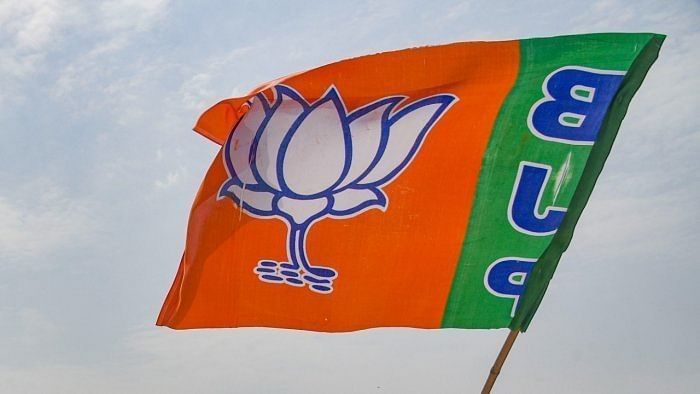
Ten years ago, Hansraj Gangaram Ahir shot into the limelight when he unearthed the coal scam during the UPA regime.
Defeated in the last Lok Sabha polls, the Modi government appointed the former Chandrapur MP Chairman of the National Commission for Backward Classes (NCBC) in December 2022.
Six months after being rehabilitated, the ex-BJP MP is back in the news, taking a strident stand on the inclusion of a ‘disproportionate’ number of Muslim castes in the West Bengal OBC list, a position that has lent a new dimension to traditional Mandal politics and is bound to test the Opposition's own moves to blend social justice with welfarism.
If the fault lines earlier were drawn between the numerically minor vs major OBCs, the debate is now veering towards Hindu OBC vs Muslim OBC.
The chorus on ‘Muslim reservations’ has since become shriller. Leading from the front is none other than Amit Shah. At a party rally in Nanded earlier this month, the Union Home Minister dubbed Muslim reservations as ‘unconstitutional’.
Four days later, BJP president J P Nadda muddied the waters. Quoting the NCBC report, he accused Bengal, Punjab, Bihar and Rajasthan of “robbing the OBC community of their constitutional right of reservation”.
Unlike SC and ST quotas, which are restricted to Hindus, OBC affirmative action has a much wider sweep.
The constitutional term for OBC is Socially and Educationally Backward Classes (not castes); therefore, ‘backward classes’ reservations are extended to all backward communities irrespective of their religion.
“In states like Telangana, BCs have been extended reservations even in the local body polls," said BJP National OBC Morcha president and Rajya Sabha MP K Laxman.
“Now, in Greater Hyderabad Municipal Corporation, out of 150 wards, 50 seats are reserved for OBCs. Out of this, 32 are Muslim OBCs," claims Laxman, demanding a halt to reservations for Muslims under the BC quota in the local bodies in Andhra Pradesh and Telangana.
The BJP’s renewed OBC pitch is both reactionary and preemptive, and it is being pushed to fortify its current base and explore new territory; something that is evident in the party's recalibrated OBC push.
Contrary to common perception, in the post-Mandal churn, the BJP has been the biggest beneficiary of the backward-class mobilisation. The party has under the larger Hindu umbrella created extensive social coalitions of OBCs or intermediary castes, which constitute more than 50% of the electorate (54% extrapolated by the Mandal Commission).
The fresh challenge to BJP’s OBC hegemony comes from two quarters: first, regional satraps like Nitish Kumar and Akhilesh Yadav are demanding caste census; second, the Congress has further queered the pitch as Rahul Gandhi is pressing for a proportional, not just representative, allocation of the quota pie.
Currently, three of the four current Congress chief ministers — Siddaramaiah in Karnataka, Bhupesh Baghel in Chhattisgarh and Ashok Gehlot in Rajasthan — are from the BC communities, and there are clear signs that the party is ready to shed its reluctance and jump into the caste cauldron.
While on the one hand, the BJP will have to fend off a pincer assault on its OBC vote bank, on the other hand, it will have to wade into unchartered terrain to expand and compensate for losses incurred elsewhere.
While the party has spread its wings across the country, it remains weak along the eastern belt, especially the Coromandel coast.
In the 2019 Lok Sabha polls, BJP won 94 out of 124 seats in Gujarat, Maharashtra, Goa, Karnataka, and Kerala — states abutting the Arabian Sea. In all these states, barring Kerala, the BJP has tasted success using dominant intermediary castes as a vehicle for political mobilisation — Patidars in Gujarat, OBCs in Maharashtra and Lingayats in Karnataka.
Compare this with the 30 seats it won out of 145 in West Bengal, Odisha, undivided Andhra, Puducherry and Tamil Nadu. In all these states, the BJP has not been able to win the trust of any dominant backward community.
Ostensibly, the renewed thrust on OBC votes in states bordering the Bay of Bengal is one such attempt to gain ground ahead of the Lok Sabha polls.
Both in Bengal and Odisha, the BJP is reaching out to backward communities.
In Telangana, BJP is betting big on OBC leaders, like state OBC president Bandi Sanjay, Etala Rajender and OBC Morcha Chief K Laxman. In adjoining Andhra Pradesh, the BJP is trying to find a toehold by aligning with Pawan Kalyan’s Jana Sena, which has influence among the Kapu community.
However, some observers feel that the debate may not cut much ice with the community the BJP is trying to win over. “To demonstrate that Hindu OBCs are being under-represented, you have to have numbers. For that, one needs to conduct a caste census, which precisely is what the Opposition is demanding and that’s an exercise which the government has been unwilling to undertake," says Prasenjit Bose, economist and political commentator.
With less than 12 months to go for the Lok Sabha elections, the die has been cast.